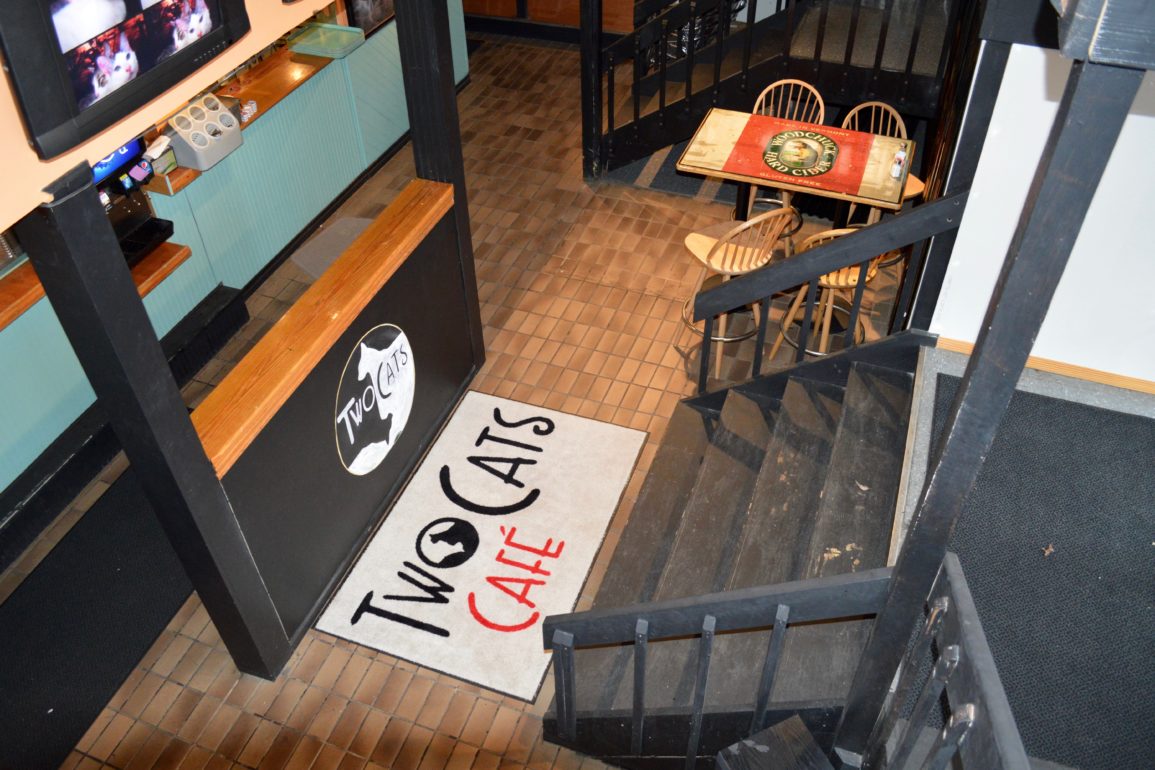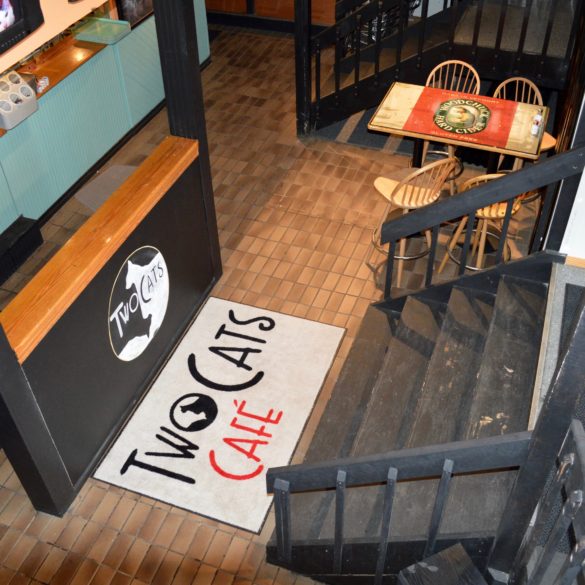Kyla Adamson, a first year graduate student studying biology, grew up with her mom in the habit of eating healthy food.
She was just 13 years old when her family moved from Marion, Indiana to St. Louis, Missouri. In high school, Kyla moved out of her family’s house, so when she decided to go back to Indiana for college, she adapted well since she was already out of the house.
During her freshman year at Ball State University, Kyla had dropped off a friend at her house for the first time. She found herself driving through downtown Muncie, taking the long way back to campus.
On her way back, she noticed a burgundy shop that sat on a corner in the downtown area. As she drove through the light, the green-trimmed shop and yellow sign that read “The Downtown Farm Stand: An Authentic Food Store” caught her attention. While she didn’t stop that time, she still felt the need to go check it out.
The farm stand stayed fresh in her mind, so she eventually decided to try it out a little while later. The moment she stepped in the shop, she was overwhelmed with the smell of her mother’s kitchen. The smell of the home cooking and food her mom used to make instantly made her feel at home in this new place.
The other customers were very friendly and the workers were very welcoming. Kyla had fallen in love instantly with the overall experience the farm stand gave her. The atmosphere and food were so pleasant that this is still her favorite place to buy her groceries, six years later.
Kyla occasionally shopped locally before her move to college, but she never had looked at it the same she does now. She said she really enjoys giving back to the local economy, and the sense of community that comes with it. The personal experiences Kyla has had with local stores in Muncie has made her more passionate about supporting the small business industry.
She had discovered her newfound love for supporting local businesses through finding The Downtown Farm Stand.
The Millennial generation has sparked a new passion for supporting locally owned businesses. About 50 percent of Millennials see importance in supporting local businesses rather than a major retailer according to a recent study by Ypluse, a Millennial research firm. The main source of this importance seems to stem from the individuality, trustworthiness, and sense of community some feel these locally owned businesses provide.
Owner of The Downtown Farm Stand, Dave Ring said, “Millennials are tired of big businesses telling them what to buy, think, wear, and eat.”
The individuality of small businesses is more distinct than big businesses. The owners themselves have more room for individualizing their shops because they do not have specific guidelines on how their businesses should look. Many shops tend to try to attract Millennials by tailoring to the individuality that Millennials seek.
The businesses that are more individualized, like The Downtown Farm Stand, draw in younger individuals like Kyla. She mentioned that the idea of having something rare and more personalized just enhances the experience.
According to The New Economics Foundation, the main problem with small businesses in the past is their ability to get enough customer flow. By appealing to this younger generation, local businesses are profiting and becoming more stable. Local shops always have their regulars, but by drawing in passionate Millennials, they are gaining a larger regular customer flow.
Millennials tend to support small businesses because some plan to be the employer someday, rather than the employee. Over half of Millennials plan to have their own business in the future, according to a study conducted by Bentley University. This drives the generation to support local businesses for reasons such as getting ideas for their future businesses or just keeping money in the local economy.
Pamela Stigall, program director of consumer sciences at Ball State University, said that Millennials do not want to follow their parents’ or grandparents’ footsteps. They do not want to work in an already existing business, work in factories, or go into schools. “They are entrepreneurs themselves. A lot of this generation has wanted to go off and start their own businesses,” she said.
These businesses Millennials hope to someday start would be in competition with more corporately owned companies. Big businesses tend to get a lot of media attention, customers, and money. The idea of where this money goes, the credibility of their advertisements, and how they treat their customers all factor into Millennials’ lack of trust for big businesses.
Kyla said she strongly believes that big businesses are untrustworthy. She said that she thinks they will do anything for money.
According to research by the Institute for Local Self-Reliance and Austin (Tex.) consulting firm Civic Economics, if $100 is spent at a big business, about $13 remains in the local economy. When $100 is spent at a local business, about $45 remains in the local economy.
Millennials, Kyla and Lucia Borgmann both, believe in the idea of buying locally to support the local economy. They believe that by purchasing goods found in smaller businesses, they are helping to keep money in the local economy. But, also money from big businesses.
Lucia, a recent graduate of Ball State, said that local businesses are of huge importance in places like Muncie, Indiana. The economy is always going up and down, and buying locally can help the local economy.
Buying locally does contribute to the local economy, but this usually means paying more money for products.
Pamela said, “Millennials are willing to pay more for products because the quality of the items are generally better.” When it comes to food, it’s organic and healthier, which makes it worth the money in Millennials’ eyes, she said.
Kyla and Lucia both agreed that spending more on products at a local business is worth the quality that is provided.
Sometimes it’s hard to avoid shopping at a large business due to the easy access of their locations, and the amount of time one has.
While Kyla tries to shop locally whenever possible, she still sometimes finds herself spending her money at larger companies. She does this purely for convenience. Kyla said there is a Starbucks right next to her house, so even though she’d rather go somewhere local like The Cup, often times she doesn’t have the time to drive out of the way for it.
Millennials see the importance of supporting and interacting with the community that local businesses draw in.
You really get to know the community through local businesses and once you form bonds with these people, you find yourself wanting to support them, Kyla said.
“It’s a community we built here,” Dave said of his business. “It’s a relationship of mutual appreciation.”
Lucia mentioned her experiences with relationships at local businesses have been more intimate and friendly. It’s not as scripted as big businesses are, and make you feel more at home.
When Lucia studied geography at Ball State she was introduced to the phrase “third place,” meaning the place people spend their time at when they are not at home or work. She said this third place is commonly found in local shops, especially here in the Village, which is right off of the Ball State campus. An individual forms bonds with the other people that go there, and it becomes their third place.
“It’s like a home away from home,” Lucia said.
Owners of small companies make an effort to see that the experience is more pleasing and to really get to know their customers, Kyla said. The smell of her mom’s cooking and the ability to feel at home is what made Kyla feel truly passionate about shopping locally.
Millennials that are passionate about the local economy are helping the local business profit tremendously through their constant support.




